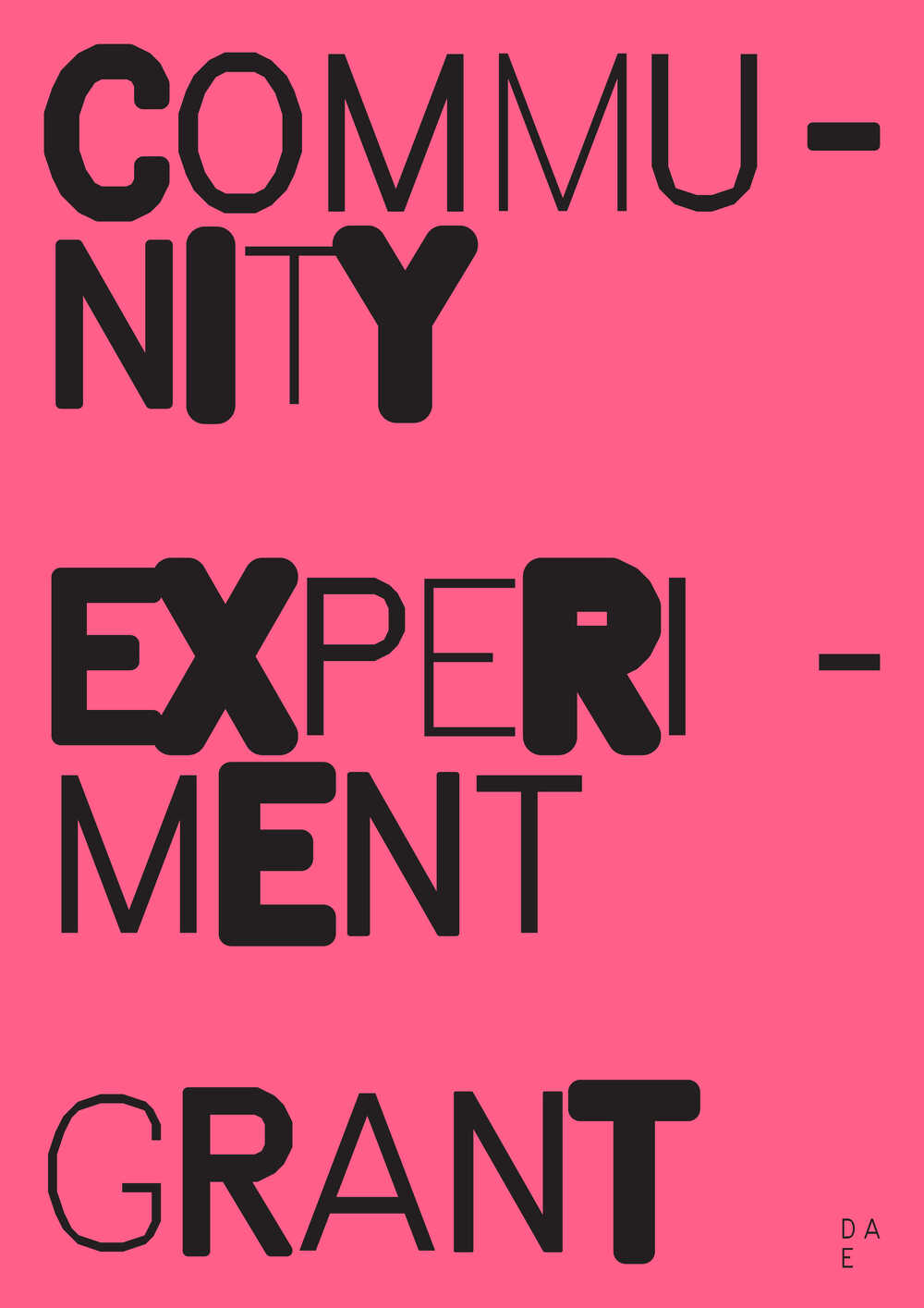Community Grant
Whether it is organising a feminist zine making workshop or an inclusivity peer support group, a decolonial book club or a collective storytelling event - the micro-grant scheme encourages current students to consider our school as a laboratory, a think tank, a testing ground for alternative modes of thinking and doing through small scale extra-curricular initiatives.
Interested students or student groups can apply for the micro-grant through submitting an application package, available on the page, detailing their proposal, intended impact, timeline and budget. Completed applications can be handed in digitally or physically to Pete (), and will then be evaluated and approved within two weeks of submission. The CO will also guide successful applicants in realising their community projects.
Each grant application has an upper limit of 300 euros and is meant to cover material, production costs, or other relevant expenses. The micro-grant scheme operates on a rolling deadline throughout the academic year and the application process will remain open until funds are dispersed. If you have questions, please see the frequently asked questions below or contact .

FAQ
→ What is the evaluation criteria? The applications will be reviewed based on their intended community impact, relevance, feasibility and reach.
The selection process includes consideration of groups and topics that are structurally or historically underrepresented and favours proposals aimed at these subjects and groups.
Applicants are welcome to reach out to the CO if they want to discuss their application before submissions. Should you require extra help with writing/typing due to injury or other reasons, you are also welcome to request a meeting for a spoken application.
→ Does the proposed project need to happen within DAE? While it is not encouraged, we understand that not everything is possible within the building of the Academy. Should your application involve doing something somewhere else, we would like to recommend taking accessibility into consideration when choosing your alternative location(s).
→ Do you have to use the whole 300 euros? No, your application could also propose for less than that amount.
→ What if I need more money for my project? You can consider this micro-grant scheme as a seeding grant for further ambiguous projects - as a support for your proof of concept. However, you are more than welcome to email us at directly if you think otherwise.
→ What happens when my application is not approved? You will receive an email with the decision from us regardless within two weeks. Feedback will be available upon request and you are more than welcome to re-apply with a modified application.
→ Can I apply with a project that I've worked on within my class? Yes. That being said, the project should be community oriented.
→ How many times can I apply? One successful application will be granted per academic year to each student or student group.
→ Can I invite external partners? Yes, bringing in speakers*, workshop facilitators, etc from outside of DAE; or exhibiting, publishing, collaborating on something that you started at DAE with an organisation outside is permitted. Please indicate your collaborator(s) this in your application.
→ Do I have to do anything after I have completed the proposed project? A brief report and some photo documentation is required from applicants upon the completion of their projects. If you are doing a publication, we would love to receive a copy as well. We also reserve the right to ask for additional material for promotional/documentation purposes.
*In the case of inviting an external speaker at DAE, we recommend you contact the DAE Lecture Series as they are always looking for speakers that are of interest to the DAE community! Email them at .
ADDITIONAL RESOURCES AND READINGS
→ Design As Participation, MIT Press, Kevin Slavin, 2016
→ Does Design Care?, Futures, Cherry-Ann Davis and Nina Paim, 2021
→ From Design Culture to Design Activism, Guy Julier, Design and Culture, 2015
→ Critical Design Ethnography: Designing for Change, Sasha A. Barab, Michael K. Thomas, Thomas Tyler Dodge, Kurt Squire, Anthropology & Education Quarterly, 2004
→ Dick & Rick: A Visual Primer for Social Impact Design, Equity Collective, 2016
→ Studying Through the Undercommons: Stefano Harney & Fred Moten, Class War University, 2012